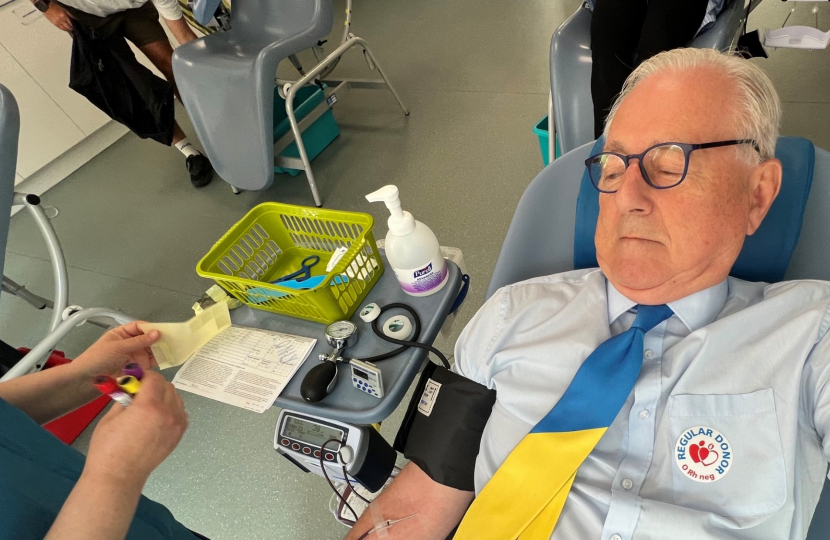
Instead of attending the Infected Blood Inquiry to hear the Prime Minister, I have chosen to be at Christ Church for the funeral service for my friend and neighbour Evelyn Plumb. We lived across a hallway in the small block of flats in Worthing’s Ambrose Place from 1996. She was kind, enquiring, sharp and reliable. She was loved in the choir; she had great friendships and her children are a lasting credit to her as a parent.
On my birthday each year and on many other days, I remember my first brother Robert. After an unusual fatal incident over sixty years ago, my parents agreed, when his life support was turned off that his eyes could be used for transplants, giving sight to others.
Organs can now be transplanted. I have agreed that any useable parts of my remains can be used to extend life for another person or my body can be used by a trainee surgeon for practice. If I die with a smile on my face, it may be in anticipation that it may amuse someone to examine my half knee or replacement hips.
Younger volunteers have now succeeded me on the Anthony Nolan register of potential donors. If you have blood cancer, a stem cell transplant from a matching donor could be your chance of survival. The charity makes life-saving connections between strangers. The person in need and the person willing to offer their own stem cells are linked.
The call is for donors aged 16-30. Research shows younger donors improve outcomes. Do see the Anthony Nolan charity’s website if you can consider helping. I had experience of being called forward; I was screened out at the last stage when a more suitable donor was identified.
NHS Blood and Transplant had me in to donate platelets. Blood is safely drawn from your arm at one of the 25 donation centres around England. Each donation can help up to 12 children or three adults. It is a miracle that a baby can be born safely after a series of platelet transfusions in the womb. Platelets help to stop bleeding and can be a lifeline for people with a cancer.
The Blood donors’ website reminds us how many come together to research what will work safely, how to create the network of donors and to recruit a flow of new people to relax in the donors’ chairs. It does matter. My whole blood donation this week helps boost the stock of O negative blood.
More than ten people in the Worthing West constituency need a life-saving transplant. Most are kidney patients. Over 7,000 are in the queue nationally.
In September’s Organ Donation Week, there will be a parliamentary event organised by Kidney Care UK and NHS Blood and Transplant. We will hear personal experiences of what it is like to donate or to receive a kidney transplant. Honour the gift of donation.
We need to adapt the law to an ‘opt out’ system. We would keep the choice of being an organ donor or not when we die. I encourage more people to register their decision on the organ donor register.
It is over thirty years since I became active in seeking effective help and compensation for the victims of infected blood. The concluding report of the Inquiry led by Sir Brian Langstaff will lay out how and why this avoidable tragedy started, was not stopped and how government too often reacted late and slowly.
It is not easy for departments to cooperate effectively. It requires dedication by officials and drive by ministers. We can react at speed, right or wrong, as in the Alison Rose and Nigel Farage business. We can react too slowly as over blood victims.
My task is to help everyone do good, contributing together to a better future.



